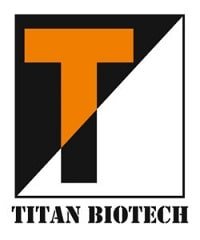Table of Content
- Understanding Bovine Collagen Peptide
- Benefits of Bovine Collagen Peptide
- Science Behind Bovine Collagen Peptide
- Applications of Hydrolysed Bovine Collagen Peptide
- Safety and Considerations
- Conclusion
- Frequently Asked Questions
- References
Collagen, a fundamental protein in the human body, is a structural cornerstone that contributes to the seamless functioning of various tissues and organs. Collagen is essential in bones, cartilage, tendons, ligaments, and muscles, playing a vital role in maintaining their strength and integrity. However, with increasing age, the body’s natural collagen production gradually declines. This diminishing collagen synthesis manifests in signs of aging, such as wrinkles, joint discomfort, and reduced skin elasticity. However, external supplementation becomes paramount to counteract this decline.
Introducing bovine collagen supplements becomes a proactive strategy to replenish the diminishing levels within the body. By incorporating collagen supplements into one’s routine, individuals can actively fulfill the body’s intrinsic need for this critical protein, supporting various bodily functions and maintaining a foundation for overall health and well-being. In this blog, we will delve into the intricacies of bovine collagen peptide, exploring its origin, benefits, applications, and the science behind its growing popularity.
Understanding Bovine Collagen Peptide
Bovine collagen powder is derived from the hides of Bovine Sources. Collagen, a structural protein, plays a vital role in maintaining the integrity and elasticity of various tissues in the human body. It is a crucial component of skin, bones, tendons, ligaments, and connective tissues. Our body’s natural collagen production declines as we age, leading to signs of aging such as wrinkles, sagging skin, and joint discomfort.
Bovine collagen peptides are obtained through hydrolysis, where collagen molecules are broken down into smaller, more easily digestible peptides. This results in a highly bioavailable collagen supplement, meaning the body can efficiently absorb and utilize it.
Benefits of Bovine Collagen Peptide

1) Skin Health and Anti-Aging
Bovine collagen peptide is renowned for promoting skin health and combating signs of aging. Replenishing collagen levels in the skin helps reduce the appearance of wrinkles, fine lines, and sagging. Studies suggest that regular consumption of bovine collagen peptide may increase skin hydration and elasticity, contributing to a more youthful complexion.
2) Joint Support
Collagen is a major component of joints, providing structure and support. Bovine collagen peptide may help alleviate joint pain and discomfort by supporting the maintenance and repair of cartilage. Athletes and individuals with active lifestyles often use bovine collagen peptides to support joint health and flexibility.
3) Hair and Nail Growth
Collagen is essential for the health of hair and nails. Bovine collagen peptide can contribute to stronger, healthier hair and promote faster nail growth. The protein-rich nature of collagen supports the building blocks necessary for vibrant and resilient hair and nails.
4) Gut Health
Collagen peptides may positively impact gut health by promoting the integrity of the gut lining. It can contribute to improved digestion and nutrient absorption. Some individuals find relief from digestive issues such as leaky gut syndrome by regularly consuming bovine collagen peptides.
Science Behind Bovine Collagen Peptide
- Amino Acid Profile- Bovine collagen peptide is rich in essential amino acids, including glycine, proline, and hydroxyproline. These amino acids are crucial for synthesizing collagen and other proteins in the body. Bovine collagen peptide’s specific amino acid composition closely resembles human collagen, enhancing its effectiveness as a supplement.
- Bioavailability- The hydrolysis process breaks collagen into smaller peptides, increasing its bioavailability. The body absorbs bovine collagen peptides more readily than larger collagen molecules. The enhanced bioavailability ensures that the collagen peptides can reach target tissues more efficiently, maximizing their benefits.
- Stimulation of Collagen Synthesis- Research indicates that consuming bovine collagen peptide stimulates the body’s collagen synthesis. It replenishes collagen levels and supports connective tissues’ overall health and resilience. The collagen produced in response to supplementation contributes to the structural integrity of the skin, joints, and other collagen-rich tissues.
Applications of Hydrolysed Bovine Collagen Peptide

- Dietary Supplements- Bovine collagen peptide is commonly available as nutritional supplements, including powders, capsules, and liquid formulations. These supplements are convenient for daily consumption and can be easily incorporated into various routines.
- Foods and Beverages- The versatility of bovine collagen peptide benefits allows its integration into a wide range of functional foods and beverages. From collagen-infused coffee to protein bars, manufacturers are finding innovative ways to make collagen supplementation enjoyable and accessible.
- Cosmetic and Skincare Products- The beauty industry has embraced bovine collagen peptide as a critical ingredient in skincare formulations. Collagen-enriched creams, serums, and masks aim to rejuvenate the skin, enhance elasticity, and promote a radiant complexion.
- Sports Nutrition- Athletes and fitness enthusiasts increasingly use bovine collagen peptides in their sports nutrition regimen. The joint-supporting properties and protein content make it a valuable addition to recovery drinks and protein shakes.
Safety and Considerations
- Quality and Purity- When choosing a bovine collagen peptide supplement, it is crucial to prioritize products from reputable manufacturers. To ensure quality and purity, look for certifications, such as Good Manufacturing Practices (GMP).
- Allergen Information- Individuals with allergies or sensitivities should check product labels for potential allergens. While bovine collagen peptide is generally well-tolerated, it’s essential to be aware of any additional ingredients that may be present in supplements.
- Dosage and Consistency- The effectiveness of bovine collagen peptide often depends on consistent and regular use. Follow the recommended dosage guidelines the manufacturer provides and consult a healthcare professional if unsure.
Conclusion
Bovine collagen peptide has carved a niche in the health, beauty, and wellness industry. With its diverse benefits ranging from skin rejuvenation to joint support, this natural supplement continues to gain popularity. As consumers seek alternatives to traditional beauty and health solutions, the science-backed advantages of bovine collagen peptide position it as a promising and multifaceted option for those looking to enhance their overall well-being. As with any supplement, informed choices, proper usage, and a holistic approach to health will contribute to maximizing the potential benefits of bovine collagen peptide in one’s lifestyle.
Elevate your collagen intake with Titan Biotech Limited– pioneers in the nutritional supplements industry since 1992. As an Indian-owned and operated company, we take pride in offering a range of ingredients crafted from pure, natural ingredients that consistently deliver tangible results. Our Hydrolysed Collagen Peptide (HCP) powder is ideal for those seeking to enhance their collagen levels.
At Titan Biotech Limited, we believe in the power of quality supplements to support your health and wellness journey. Trust in our commitment to excellence as you boost your collagen intake and achieve actual, noticeable results.
Frequently Asked Questions (FAQs)
What is Bovine Collagen Peptide, and how is it different from other collagen sources?
Bovine collagen peptides are derived from bovine hides through hydrolysis, breaking collagen molecules into smaller, easily digestible peptides. It differs from other collagen sources in its origin, being sourced from bovine hides, and is known for its high bioavailability, making it efficiently absorbed by the body.
How does Bovine Collagen Peptide benefit skin health?
Bovine collagen peptides benefit skin health by replenishing collagen levels and reducing the appearance of wrinkles, fine lines, and sagging. Studies suggest it enhances skin hydration and elasticity, creating a more youthful and radiant complexion.
Is Bovine Collagen Peptide safe for those with dietary restrictions or allergies?
Bovine Collagen Peptide is generally well-tolerated, but individuals with allergies or dietary restrictions should check product labels for potential allergens. It’s essential to choose products from reputable manufacturers and consult with a healthcare professional if there are concerns.
Can Bovine Collagen Peptide help with joint pain and flexibility?
Bovine collagen peptides can support joint health by providing structural support to cartilage. Athletes and those with active lifestyles often use it to alleviate joint pain and discomfort, promoting overall joint flexibility and mobility.
How should Bovine Collagen Peptide be incorporated into a daily routine?
Bovine Collagen Peptide is commonly available as dietary supplements in various forms such as powders, capsules, or liquid formulations. It can be easily incorporated into daily routines by mixing it with beverages, adding it to smoothies, or taking it as the manufacturer recommends.
Are there any side effects associated with Bovine Collagen Peptide supplementation?
Bovine Collagen Peptide supplementation is generally safe, with minimal reported side effects. However, following recommended dosage guidelines and being aware of potential allergens is essential. If any concerns arise, consulting with a healthcare professional is advised.
References:
- https://www.ncbi.nlm.nih.gov/pmc/articles/PMC4057461/
- https://www.ncbi.nlm.nih.gov/pmc/articles/PMC8620403/
- https://josr-online.biomedcentral.com/articles/10.1186/s13018-023-04182-w
- https://link.springer.com/article/10.1007/s40744-020-00240-5

